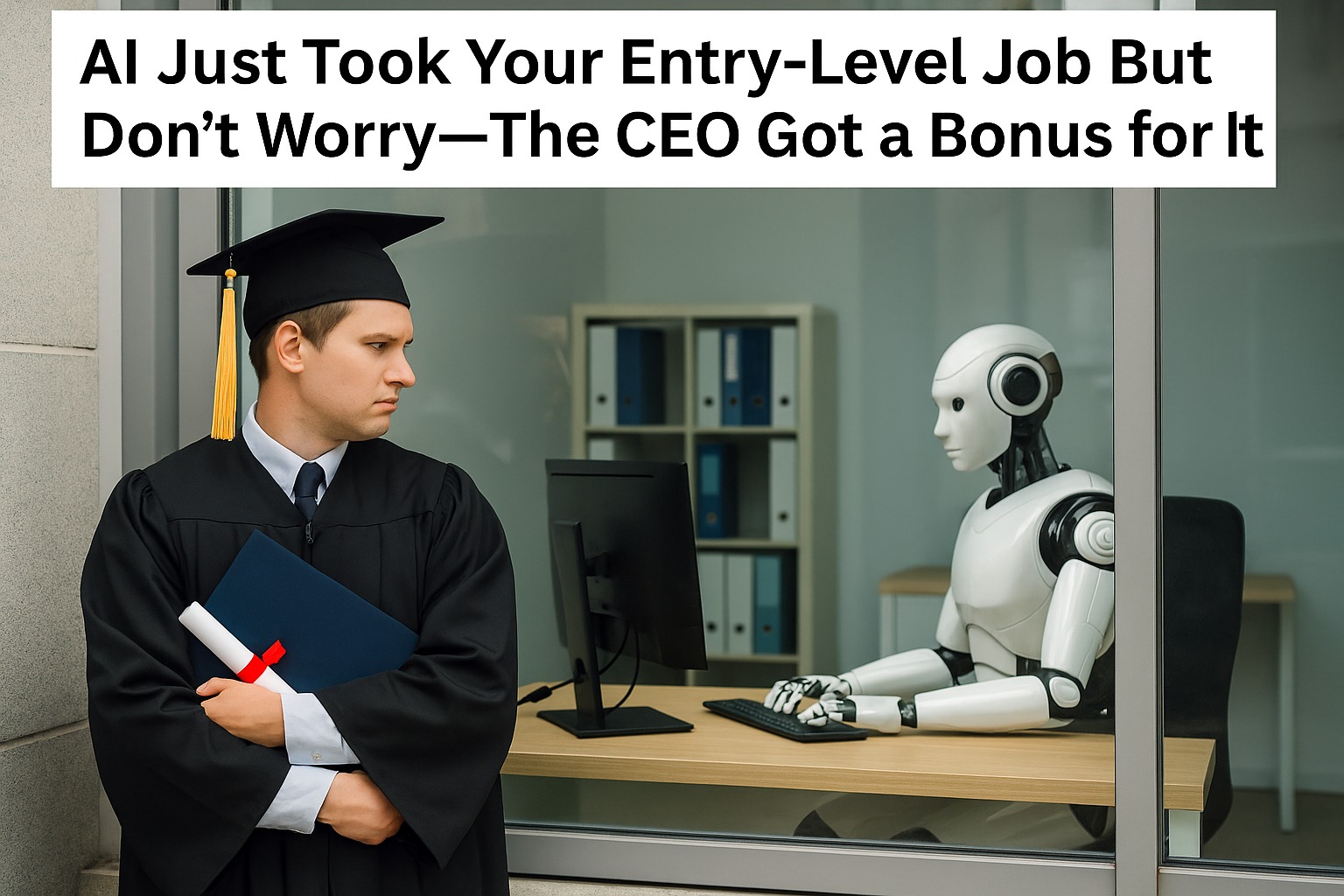AI Just Took Your Entry-Level Job, But Don’t Worry, The CEO Got a Bonus for It
Lex Linkedman
Associate Mockitor of Influence and Optimization
Digital Culture Reporter
Companies claim AI makes them more efficient. Translation: no new hires, record profits, and a CEO so rich he now identifies as a data set.

SAN FRANCISCO — For the class of 2025, the job hunt has become a game of musical chairs, except the chairs are gone, replaced by chatbots that can “collaborate dynamically” and don’t take lunch breaks.
“I graduated with honors in business analytics,” said one recent graduate, “and my first rejection email was signed by an AI. It even offered me résumé tips. From the job I didn’t get.”
Across industries, companies are celebrating “operational efficiency” while quietly eliminating human efficiency altogether. Corporate statements boast of “leaner teams” and “AI-enhanced workflows,” which economists have confirmed means “no people.”
Tech firms say automation is freeing workers to “pursue creative roles.” The only problem: none of those roles exist, and the creative department was outsourced to Midjourney six months ago.
Executives, however, are thriving. The average CEO pay package jumped 28% this year, mostly from “cost savings achieved through innovation.” Translation: they replaced the marketing team with a prompt template and a nervous intern named Kyle.
“The future of work is exciting,” said one CEO, moments before announcing 5,000 layoffs. “Our AI systems are learning faster than ever.” Asked if that was a problem, he replied, “Only for the humans.”
College career centers have begun offering new workshops, including “Networking with Algorithms” and “How to Pretend You’re a Machine Learning Engineer on LinkedIn.”
Critics say this is the logical outcome of decades of valuing efficiency over empathy. “They said AI would make work easier,” said one professor. “They just didn’t say for whom.”
Meanwhile, the same executives who praise AI for “streamlining operations” continue complaining that “no one wants to work anymore.” Economists note that this statement is usually followed by a stock buyback.
As for new graduates, many have accepted that their first job will be explaining to their parents that ChatGPT now has better benefits than they do.
The Department of Labor confirmed that job listings for “entry-level” now require “5 years of prompt engineering experience and the emotional stamina of a Roomba.”












